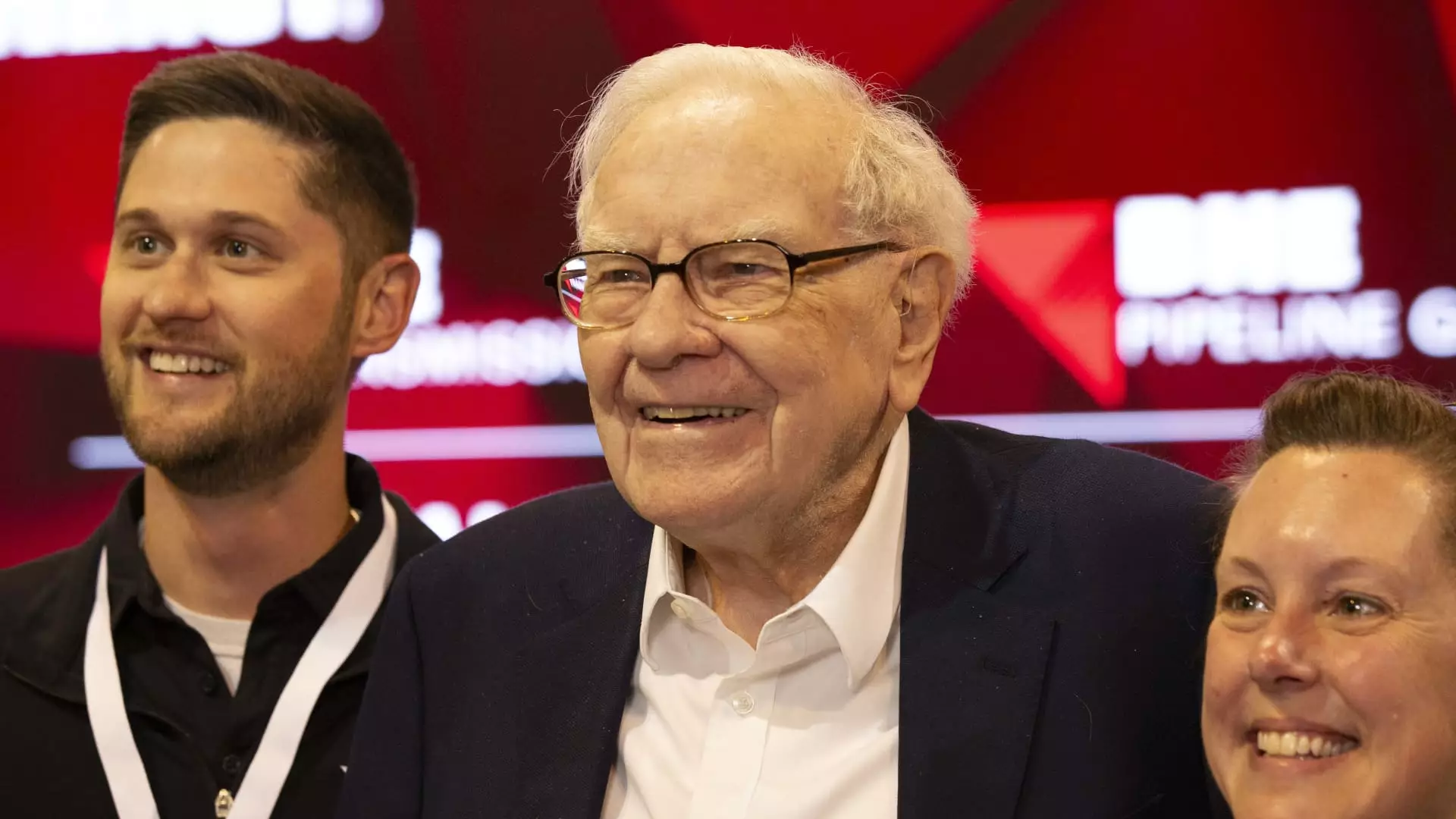Warren Buffett, the revered “Oracle of Omaha,” is poised to address shareholders and a global audience anticipating his thoughts on the tumultuous market climate. As he prepares to release his essential annual letter alongside Berkshire Hathaway’s earnings report, the stakes have never been higher. The 94-year-old financial sage will touch on pressing topics, including ongoing trade wars, the devastating wildfires in California, and recent stock-selling trends within his own empire.
The impact of the California wildfires cannot be underestimated. While Berkshire Hathaway may not be deeply entrenched in Californian insurance markets, its substantial reinsurance division stands to face significant consequences. Analysts predict that the financial damages could soar over $40 billion, a staggering potential loss that would echo through Berkshire’s vast portfolio. James Shanahan from Edward Jones highlights the probable exposure Berkshire might experience due to these catastrophic events.
Furthermore, estimates from financial analysts suggest that Geico, a Berkshire subsidiary and one of the leading auto insurers in California, will likely incur claims related to wildfire damages, but these losses are expected to be manageable in scale. The market is keenly awaiting the April earnings report, where more precise figures related to the wildfires may be disclosed. As these fires represent some of the costliest disasters in U.S. history, Berkshire’s resilience will be under scrutiny.
The Tariff Tangle: Navigating Trade Wars
Buffett’s perspective on the ongoing tariff actions initiated during Donald Trump’s presidency may offer crucial insights into the broader economic landscape. With fresh tariffs imposed on imports from Mexico, Canada, and China, the ramifications for industries linked to Berkshire’s portfolio could be profound. Tariffs, as Buffett has articulated in the past, amount to a “tax on consumers,” potentially inflating prices and affecting overall consumer behavior.
Investors are watching to see how heightened tariffs influence Berkshire subsidiaries, particularly those reliant on materials imported from countries now facing trade restrictions. Construction businesses, for instance, might experience intensified pressure from rising costs of imported goods like lumber. Buffett’s discussions on tariffs in his annual letter could illuminate how these policies are shaping strategic decisions within Berkshire’s diverse operations.
Historically known for his value investing, Buffett appears to be diverging from the acquisition-heavy playbook that defined much of his earlier strategies. Reports indicate that Berkshire Hathaway has been on a stock-selling spree, notably reducing its position in Bank of America to below the crucial threshold of 700 million shares—a point that some analysts view as a potential turning point for further divestments. R. Scott Siefers from Piper Sandler raises concerns about what this trend portends for Buffett’s willingness to invest in stocks in an environment marked by high valuations.
A sustained increase in cash reserves, exceeding $300 billion, raises eyebrows about Buffett’s market outlook. This significant liquidity could suggest that he perceives an overheated market, leading to a cautious stance towards acquisitions and new investments. Investors may interpret this as a signal of impending volatility or an opportunity for future strategic refinancing in a more favorable market landscape.
Preparing for Succession: A Legacy in Transition
As Buffett settles into the twilight of his storied career, his efforts to ensure a seamless transition to his successor, Greg Abel, have gained momentum. Recent transactions, including the acquisition of the remaining stake in Berkshire Hathaway Energy and other structural adjustments within the company, reflect a deliberate strategy to fortify Berkshire’s foundation. These moves not only secure valuable assets but also clarify the path forward for leadership within this corporate giant.
Amidst litigations and the complexities of succession planning, Buffett’s stewardship has undoubtedly pivoted toward cementing his legacy—ensuring that Berkshire continues to thrive in an ever-evolving market landscape. Analysts like Shanahan note that Buffett seems to be laying the groundwork for future leadership, emphasizing a strategic vision that underscores continuity and resilience in the face of inevitable challenges.
As the financial world awaits Buffett’s annual address, the interplay of market dynamics, environmental challenges, and strategic adjustments will be front and center. His reflections on tariffs, stock sales, and succession will not only offer insights into Berkshire’s present circumstances but also deliver invaluable lessons for investors navigating the complexities of an uncertain economic climate. In a moment fraught with challenges, Buffett’s perspective remains a beacon of wisdom and reassurance.

